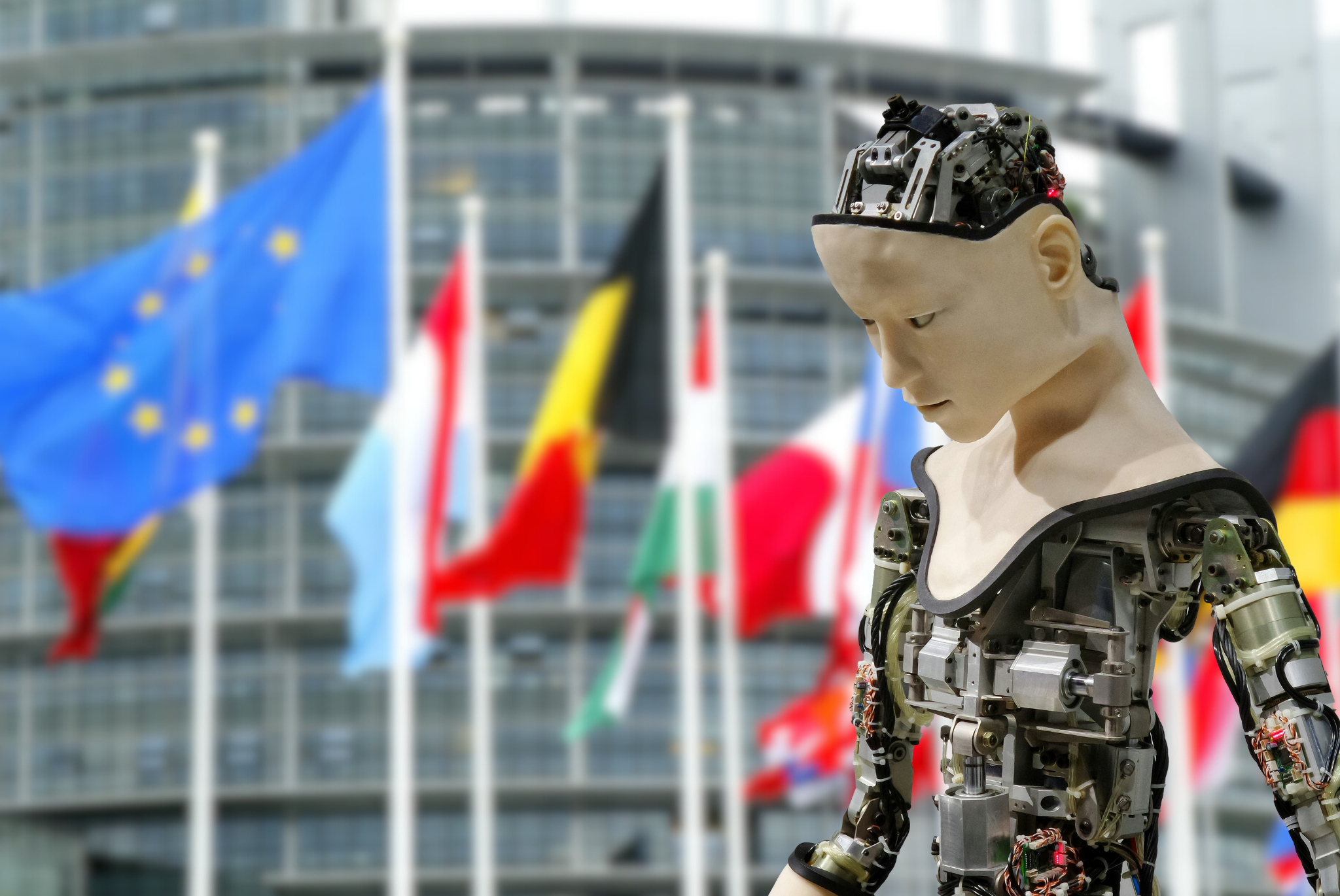
STRASBOURG - A few hours ago the European Parliament approved the AI Act, the first law in the world to regulate the development and use of artificial intelligence systems, with 523 votes in favour, 46 against and 49 abstentions. Before the official approval, the text must be approved by the Council of the European Union. The two institutions had reached a political agreement on the contents of the law in December. The law indicate the ways in which it is permitted to use artificial intelligence systems to protect the privacy and other rights of European citizens in many different applications of AI, from systems for hiring new staff in companies to the algorithms that make self-driving cars work, passing through facial recognition by law enforcement and the spread of online disinformation. There will be 6 months for suppliers and users of artificial intelligence systems and buyers to adapt the regulation. In two years all the rules will become operational. The sanctions for those who won't respect the law's rules will start from 1.5% of global turnover, equal to 7.5 million euros, up to 7%, equal to 35 million euros.
Users and companies will have to ensure that the product purchased has already passed the required assessment and conformity procedure, that will be provided with a European conformity mark and accompanied by the required documentation and instructions. The rules do not apply only in the case of research and development activities that precede the sale, to systems intended exclusively for military, defense or national security purposes and to free and open-source models, which are not artificial intelligence models with risks systemic.
The law was initially proposed by the European Commission in 2021, but it took a long time especially due to the notable technological development carried out by several companies in the last two years: the innovations have forced the European Union to take into account possible new problems in a sector in full expansion and with still blurred contours. Now the next step will be lead by the Council
The regulation provides for other prohibitions in the use of AI, for example it will not be allowed to use technologies to calculate the "social score" of each individual, a practice increasingly experimented in China where each citizen is assigned points based on behavior, which it gives the possibility of accessing particular services that are precluded to those with low scores. It will be prohibited to develop algorithms that can cause physical or psychological damage to individuals, or with the ability to manipulate their behavior even in a subliminal form. Another important point of the law deals with the technological systems on which chatbot services such as ChatGPT are based. Two levels of rules have been foreseen distinguishing between high-impact AI and all other artificial intelligence systems. High-impact AI refers to systems with considerable computing power: according to initial information, at the moment only OpenAI's GPT-4 falls into this category. High-impact AI systems must comply with rules regarding the transparency of AI training processes and the sharing of technical documentation before being put on the market. All other systems must comply with these rules only from the moment the services are marketed.
Summarizing, the application of AI in Europe will ban all the actions that are dangerous for citizens such as:
In these days in Italy is taking place the European Robotics Forum 2024, which this year is held in Rimini. It is the most important annual event in the EU Robotics for those who do research in robotics, and those who do business, and those who work at universities in various sectors. Andrea Bertolini, Director of the European Center of Excellence on Robotics and Artificial Intelligence Regulation (Eura) and professor of private Law at Scuola Superiore Sant'Anna, is a notable AI researcher and during the EU Robotics Forum organized a workshop in collaboration with Kilometro Rosso, Fraunhofers and other universities. As Ansa reported: "An epochal document which is the first in the world to take up the challenge of the safety of products linked to artificial intelligence and which in the future will have to be implemented and constantly updated".
This is the first technical presentation of the AI Act, just approved, with a guest from the European Commission who participated in the drafting of the act. Her name is Tatiana Evans. She is based in Brussels and she made the first technical presentation of the act after its approval. "We are prepared to train engineers - says Bertolini - and those who have no knowledge technique of legal issues. We prepared a video class on various technology regulation issues to train them, to make them understand what is important in research and in development of their technologies and their applications. After explaining the Act, we presented the courses which organized with the European Commission and which will be made available to engineers for free through a platform to which everyone, not just engineers, actually will be able to access to train on various aspects of technology regulation".
We will talk with Andrea Bertolini in a video interview on TME TV, about the AI Act and the training courses linked to its applications.
SOURCE: IlPost, Wired
READ ALSO ---> "What to expect from Eu AI Act"

Ilaria Vanni is a TV journalist for italian broadcasting and coordinator of The Meta Economist portal. She has a philosphy degree and she's now studing the economic and technological issues connected to the new frontiers of the metaverse.





